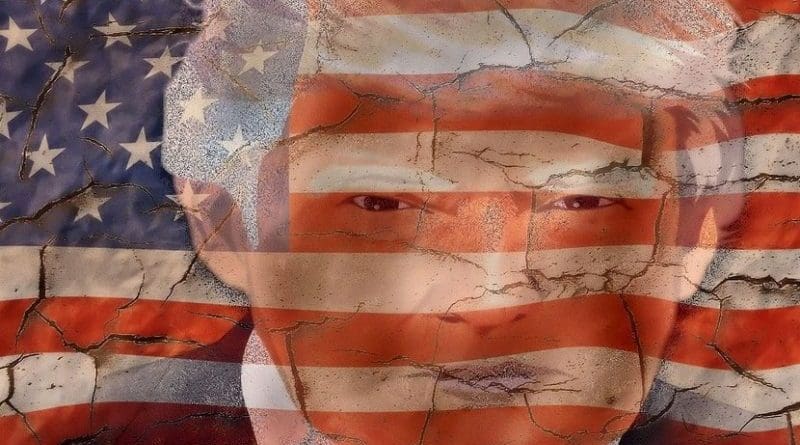Barr Report Finds Potential Obstruction Of Justice: Still Waiting On The Mueller Report – OpEd
By Mitchell Blatt*
The big news from Attorney General William Barr’s brief letter about the contents of the unreleased Mueller report is that Trump might be guilty of obstruction of justice. While Barr argued that, in his own judgement, he did not think there was enough evidence to charge Trump with a crime, he nonetheless confirmed that Special Counsel Robert Mueller’s team had found much evidence of possible obstruction of justice and included it in the report.
What is that evidence in particular? We will not know until the Trump administration actually releases the Mueller report. Media coverage of Barr’s letter has been distorted, focusing on Barr’s letter as if it represents the Mueller report.
Headlines include:
- “A Cloud Over Trump’s Presidency Is Lifted,” Peter Baker, New York Times
- “Trump, falsely accused of collusion, faces new onslaught of obstruction accusations,” Byron York, Washington Examiner
- “For Democrats, the Mueller report turns their politics upside down,” Dan Balz, Washington Post
The Washington Post headline strangely refers to “the Mueller
report” even though no such report has been released. By now, after the
Trump administration has lied about everything from the crowd size of
the inauguration, the results of the 2016 election, the size of his electoral college victory, and whether or not they met with Russian officials, the press and observers should know enough to not immediately take anything the Trump administration says as the gospel.
We do not know if Barr report fairly represents the contents of the
Mueller report, and we have no reason to be confident that it does. The
representation portrayed in Barr report, written, as it is, by a Trump
appointee who has previously been critical of the Mueller investigation in memos
and <a
href=“http://time.com/5473756/william-barr-attorney-general-mueller-probe/”>in
the press, should be considered as the low end of Trump’s wrongdoing.
The investigation itself, for that matter, considering how Mueller never
interviewed Trump and how many of Trump’s advisors lied to
investigators, would never have been able to find out everything,
either.
But Barr does state that the Special Counsel’s report “describe[s] the facts of his instruction investigation without reaching any legal conclusions.” Barr did not actually note any of the facts Mueller’s office found. Instead, he asserts—without explaining with reference to any of the facts—that he has “concluded that the evidence developed … is not sufficient to establish that the President committed an obstruction-of-justice offense.”
Only with access to the evidence can the Congress determine whether Trump committed an obstruction-of-justice offense that rises to the level of “high crimes or misdemeanor.”
The public, too, has an interest in knowing what actions related to obstruction Trump may or may not have engaged in before they vote in 2020. Even if there does not exist enough evidence to convict Trump beyond a reasonable doubt in court, there may yet exist enough evidence to convict him in the court of public opinion. There are immoral acts, which, despite not being illegal, may not be viewed favorably by the public.
The other distortion in media coverage is that the press has largely focused on questions about whether Trump personally colluded with Russia. As in the Examiner headline, Byron York takes it as a given that Trump was “falsely accused,” when a.) he was never formally accused of collusions, and b.) we have no way to know that he did not either engage in or attempt to engage in collusion. His own son had a meeting with Russian agents at his own tower with the express purpose of colluding with the Russians!
What we do know is that Barr claims that Mueller’s report did not find evidence showing Trump’s campaign did not collude with the Russians. “[T]he Special Counsel did not find that the Trump campaign, or anyone associated with it, conspired or coordinated with the Russian government in these efforts, despite multiple offers from Russian-affiliated individuals to assist the Trump campaign.”
It may very well be that Barr’s summary is accurate. To prove that anyone—let alone Trump himself—intentionally colluded with the Russian government would be difficult when all parties who would have been involved in such a case would have taken efforts to maintain plausible deniability.
As longtime Trump lawyer Michael Cohen testified, Trump “doesn’t give you questions, he doesn’t give you orders. He speaks in a code, and I understand the code because I’ve been around him for a decade.”
In much the same way, Trump tried to maintain plausible deniability for his obstruction efforts, demanding “loyalty” from Comey, and claiming his demand that Comey “see your way clear to letting this go, to letting Flynn go” was not actually a demand that Comey “let this [the investigation] go.”
What should we make of the Mueller report? We won’t know what to make of it until it’s released.
*Mitchell Blatt has been based in China and Korea since 2012. A writer and journalist, he is the lead author of Panda Guides Hong Kong guidebook and has contributed to outlets including The National Interest, National Review Online, Acculturated, and Vagabond Journey. Fluent in Chinese, he has lived and traveled in Asia for three years, blogging about his travels at ChinaTravelWriter.com. You can follow him on Twitter at @MitchBlatt.
This article was published at Bombs and Dollars.

